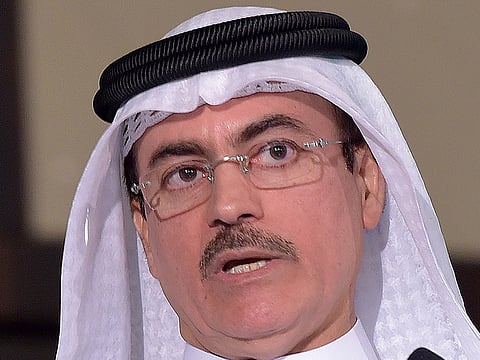UAE ministry lays down criteria for declaration of death and organ transplant
Hospitals and doctors in the UAE have to follow new protocol for brain-dead patients

Dubai: The UAE Ministry of Health and Prevention has issued a new decree on declaration of death that will facilitate organ transplantation from cadavers, officials said on Monday.
The Decree No 550 of 2017, issued by Abdul Rahman Al Owais, Minister of Health and Prevention, specifically covers three main provisions, mainly death resulting from cardiac-respiratory arrest, death resulting from complete loss of brain functions and paediatric brain death.
This complements the articles included in the Federal Health Law No 5 of 2016 which includes provisions for cadaver organ transplantation excluding stem cells, blood cells and bone marrow transplants.
Before this law, doctors did not have authority to declare a brain-dead patient dead and did not have authority to switch off life support systems. The decree was drawn up in consultation with the General Authority for Islamic Affairs and Endowments. The decree was made in response to the urgent need to enact legislation on the declaration of death in a bid to protect hospitals and enable doctors to stop the suffering of brain-dead patients. The question of clinical death is a medical and legal problem, while the issue of organ transplants has raised vital ethical issues such as the clear definition of death and the timing and manner of authorising the transplant procedures.
Defining brain death as an irreversible cessation of all functions of all parts of the brain, Dr Amin Hussain Al Amiri, Assistant Undersecretary for the Ministry’s Public Health Policy and Licensing sector told Gulf News: “The decree will facilitate organ transplant as one deceased person who is registered as an organ donor can donate six to seven organs, including cornea, liver and kidneys and can save two lives. The heart that can be transplanted in one recipient as well as the ligaments, tendons and other tissues that can be donated as well for needy patients.”
While declaring a person brain-dead, a special committee of experts will follow set medical procedures to declare the patient clinically dead and this will be a final decision. ”So, a doctor who switches off life support will not have any legal liability once the committee declares a patient clinically deceased,” he explained.
Dr Al Amiri also noted that the decree differentiates between the declaration of death resulting from cardio-respiratory arrest and death resulting from complete loss of brain functions. This serves as a guide to hospitals, especially for those with intensive care units.
Dr Al Amiri added that the decree was in line with the UAE Vision 2021 that aims at enhancing the local health system through enactment of health policies in adherence with the highest international standards. “It is a sustainable health solution, especially for individuals suffering from cancer, heart disease, pulmonary failure, hepatic fibrosis, and kidney failure. The decree will open the doors for cadaver organ transplants and also help criminalise illegal organ transplant procedures that violated human dignity and made many UAE residents victim of fraudulent transplant programmes elsewhere.
Donors can be registered through Emirates ID
Dr Amin Hussain Al Amiri said all UAE residents, including expatriates would be allowed to register as organ donors. He told Gulf News: “The national organ transplant committee will now have to establish a registry immediately and pre-register potential donors and the registration will have to be on a card they carry with them at all times and this is the National Emirates ID. After this decree, these details will be worked out, hospitals will have set provisions to notify the organ transplant team in time, they will have to define the patient, carry out tissue matches with potential recipients for the optimal use of all the organs. Certain hospitals will be certified as organ transplant units.”
Dr Marwan Al Mulla, director of the Department of Health Regulation of Dubai Health Authority (DHA) told Gulf News that the new decree would change the health care programmes in hospitals completely. “Earlier, there was a big emotional and financial burden on the relatives of a brain-dead patient’s relatives on whether to switch off the life support. Now, once the new criteria certifies that the patient is clinically dead it will help the relatives too. This is not euthanasia as the patient has been certified dead by a learnt committee after carrying out all tests. This will help the closest kith and kin to give permission for organ transplant.”
Dr. Ali Abdul Kareem Al Obaidli, Chair of the National Organ Transplant Committee, praised the completion of procedures that would pave the way for a sustainable national organ transplantation programme that will allow all UAE citizens and residents to register as donors.
In 2016, nephrologists from the Mohammad Bin Rashid University (MBRU) at Dubai Health Care City carried out two successful cadaver kidney transplants at the Mediclinic City Hospital. The recipients were two Emirati patients — one a young mother and a middle-aged father, both of whom were suffering from kidney failure and were dependent on dialysis. The organs were provided by the Saudi Centre for Organ Transplantation (SCOT). Since the transplant the two patients have had a dramatic recovery and are enjoying a good quality of life.
Sign up for the Daily Briefing
Get the latest news and updates straight to your inbox



